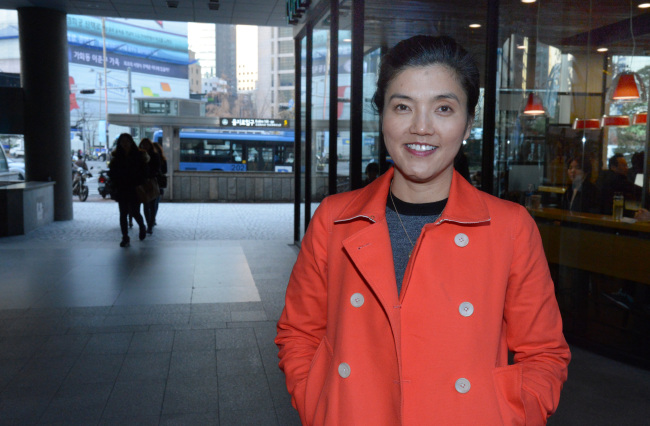Korean transnational adoptee Sarah Bowling was adopted to the U.S. in 1974 at age 3 from an orphanage in Busan.
Despite two DNA tests with potential parents in the 1990s ― both came out negative ― Bowling has not found her birth family.
However, her experience living in South Korea since 2009 as well as her own birth family search have inspired her to start a project with a very personal connection.
She recently launched Korea Reconnect, an online database that helps birth parents and adoptees look for each other without revealing their identities.
The database, with information provided both in English and Korean, currently holds hundreds of profiles of birth parents and adoptees, both transnational and local. In some ways, Korea Reconnect works almost like a matchmaking site, she said.
“You submit a story about your situation and then you can search,” Bowling said in an interview with The Korea Herald in Seoul.
“Someone in the database might have a very similar story. They might remember very specific birth dates of their child, they might have given the child a Korean name, they might know that the child is biracial. They might know the hospital they gave birth (in). It’s just taking whatever clues that are similar with each story and seeing if anyone recognizes it. It’s those clues that will register something.”
She came up with this idea of “anonymous search” after learning that reunions as well as revealing one’s personal history can be extremely difficult for birth parents in South Korea.
For many, giving up their child is still a secret for the biological mothers, who fear facing social stigmatization when that personal event is revealed.
“My opinion is that everyone has a right to search ― both birth parents and adoptees ― and then everyone has the right to be protected. And everyone has the right to get some of the answers.”
 |
Sarah Bowling poses for a photo prior to an interview with The Korea Herald in Seoul. (Chung Hee-cho/The Korea Herald) |
She said she hopes that more Korean birth parents will be willing to offer information to their children, once they learn that their identity can be protected.
“They don’t have to meet, they don’t have to have a reunion and they don’t have to have a relationship,” she said. “It’s just an exchange of information. And (as a birth parent) you are the only person who can give that information.”
And giving information about their pre-adoption days can be the “greatest gift” a biological parent can give to their birth child, she said. Doing so gives them an opportunity to find out their children’s stories as well.
Ultimately, it can offer closure and understanding for both parties, said Bowling.
“I think closure is healing ― healing from the past,” she said. “Just kind of come to terms with it. And (as an adoptee) you feel so scarred from your past.”
Bowling is returning to the U.S. this month after six years of living in Korea. She said learning about Korean culture and history, as well as forming friendships with Koreans, gave her a sense of understanding of her unknown past.
“I think what I have done ― to kind of come here, live here and spend a lot of time here ― a lot of adoptees don’t do that generally, although there are more (overseas adoptees) coming over for sure,” she said.
“And the loss of information about their history, the loss of understanding ― it stays with them forever. It’s part of who they are.”
Of 1,033 Korean transnational adoptees surveyed last year by the Korea Institute for Health and Social Affairs, 83 percent said they were interested in finding their birth family, with 71 percent saying they pursued the search already.
However, only 28 percent of those who searched were reunited with their birth parents.
According to KIHASA, South Korea has sent about 165,000 children overseas for foreign adoption over the past six decades. As recently as 2005, the country was among the top nations for sending babies abroad.
For more information on Bowling’s project, visit www.kr-dna.com.
By Claire Lee (
dyc@heraldcorp.com)








